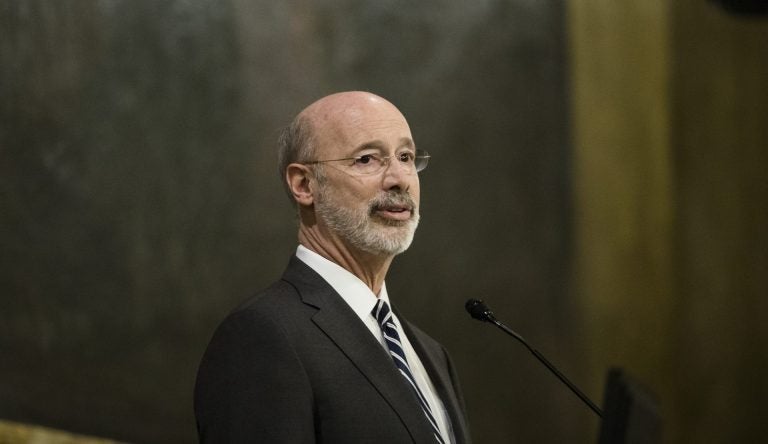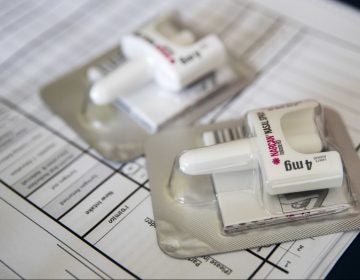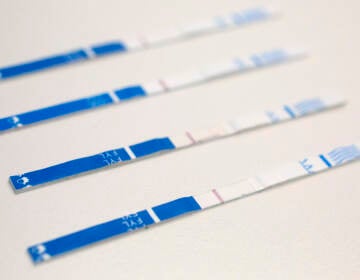Gov. Wolf signs sixth opioid crisis disaster declaration
Democratic Gov. Tom Wolf says the opioid crisis remains a disaster emergency, though there are signs that drug overdose deaths may be declining.

Democratic Gov. Tom Wolf delivers his budget address for the 2019-20 fiscal year to a joint session of the Pennsylvania House and Senate in Harrisburg, Pa., Tuesday, Feb. 5, 2019. (AP Photo/Matt Rourke)
Democratic Gov. Tom Wolf says the opioid crisis remains a disaster emergency, though there are signs that drug overdose deaths may be declining.
Wolf signed the sixth consecutive 90-day declaration, which comes about fifteen months since he first used the designation for the epidemic that contributed to 5,456 Pennsylvania overdose deaths in 2017, according to the U.S. Drug Enforcement Agency.
The emergency designation is typically used for natural disasters like floods and earthquakes. It loosens some rules to make it easier for state agencies to help people in times of crisis.
Since the first declaration, Wolf has established a command center at state’s emergency management headquarters in Harrisburg, a move he has said provides wider access to the state’s prescription drug monitoring program and makes it easier for medical professionals to get people into treatment more quickly.
In a news release, the state provided details on how it has addressed the problem of opioid addiction since Wolf first declared the emergency:
- Emergency medical service providers have administered 18,560 doses of naloxone, which reverses opioid overdoses, and have left behind 657 doses
- Hospitals and birthing centers have reported 2,359 cases of neonatal abstinence syndrome in newborns
- More than 1,500 birth certificate fees have been waived for patients to get into treatment
- More than 19,300 residents have been admitted to emergency rooms because of a suspected opioid or heroin overdose
- The Get Help Now hotline has received more than 19,500 calls from people looking for information or wanting to connect someone with a local treatment provider
- More than 258 tons of drugs were collected and destroyed by law enforcement from the more than 800 drug take-back boxes across the Commonwealth
It appears the number of opioid overdoses decreased in some parts of Pennsylvanian from 2017 to 2018, the state said in a news release, citing preliminary data reported from death certificates to Centers for Disease Control and Prevention.
“We hope that this preliminary data is confirmed and finalized, and we can take some measure of cautious optimism as we move forward in this fight,” Wolf said in the news release.
Opioid addiction is a problem that “built over decades,” and will take time to solve, added Health Secretary Dr. Rachel Levine.
“Pennsylvanians should continue to have hope for our families, for our communities and for patients who need treatment for the disease of addiction,” Levine said.
WHYY is your source for fact-based, in-depth journalism and information. As a nonprofit organization, we rely on financial support from readers like you. Please give today.





